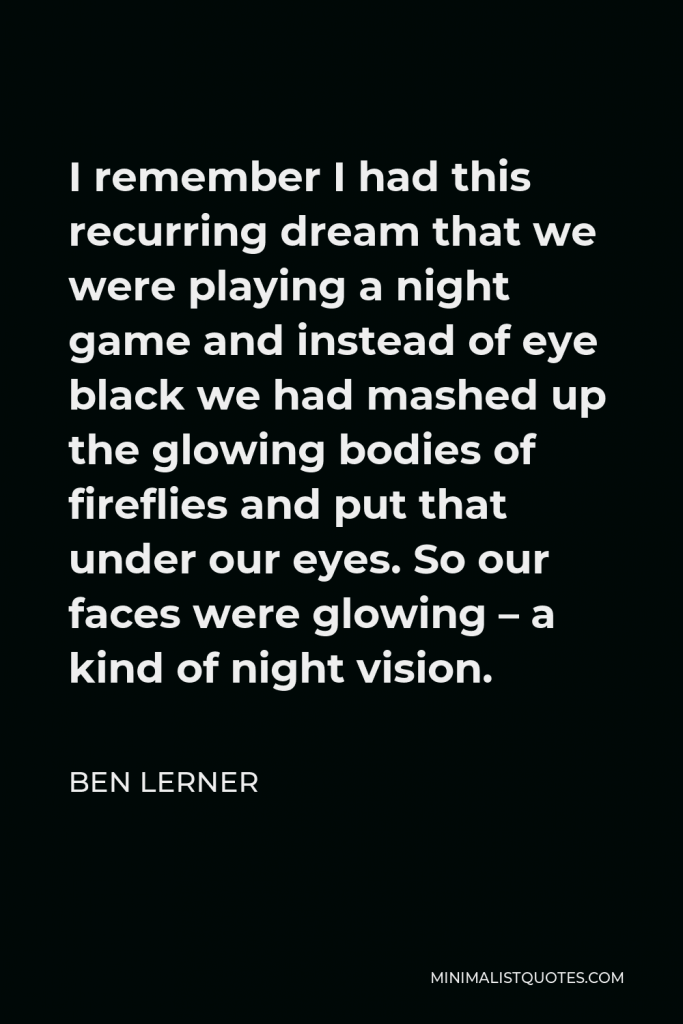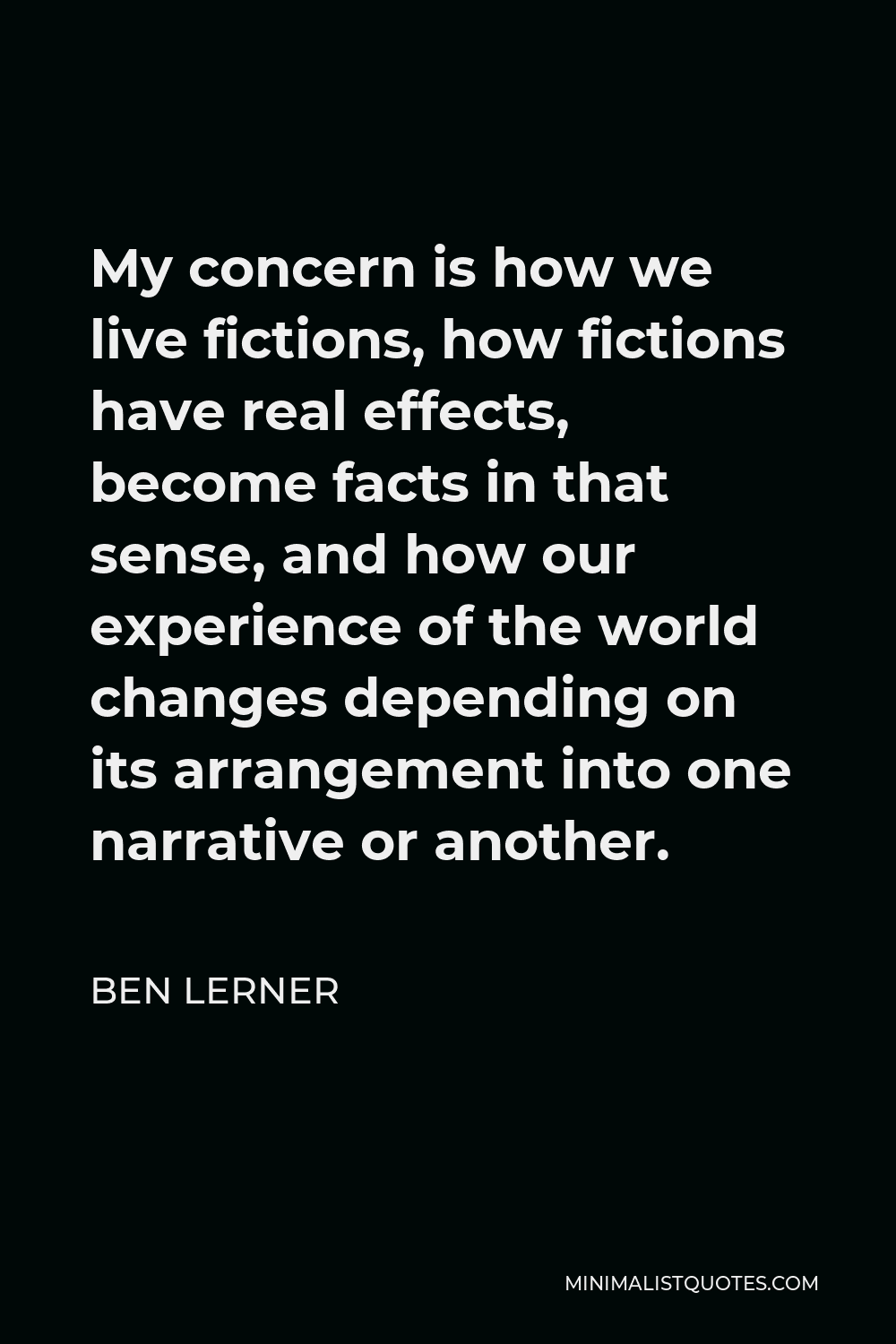The story and the poem are obviously changed by being placed in the novel, so in a sense they’re no longer the works that preceded the novel.
BEN LERNERArt has to offer something other than stylized despair.
More Ben Lerner Quotes
-






-







Many of the left thinkers that really matter to me – that formed a big part of my thinking about politics and art – emphasize how capitalism is a totality, how there’s no escape from it, no outside.
BEN LERNER -







I have no interest in artists who are purely affirmative, who’ve made a commercialized fetish of the culture’s stupidity.
BEN LERNER -






I usually see the word “metafiction” applied to works that draw attention to their own devices, their own artificiality, in order to mock novelistic convention and show the impossibility of capturing a reality external to the text or whatever.
BEN LERNER -






Maybe that’s the way I’m private – I respect the privacy of “my” characters? Anyway, we’re getting close to the whole “relatability” and “likability” thing.
BEN LERNER -







I remember I had this recurring dream that we were playing a night game and instead of eye black we had mashed up the glowing bodies of fireflies and put that under our eyes. So our faces were glowing – a kind of night vision.
BEN LERNER -







Henry James claim that if you want to be a novelist you should be somebody on whom nothing is lost.
BEN LERNER -






My concern is how we live fictions, how fictions have real effects, become facts in that sense, and how our experience of the world changes depending on its arrangement into one narrative or another.
BEN LERNER -






I wasn’t aware I’d write the novel when I wrote the New Yorker story either. And the narration of their construction in 10:04 is fiction, however flickering.
BEN LERNER -







Every relationship can feel saturated by market logic or at best purchased at the price of the immiseration of others.
BEN LERNER -






Maybe now if you’re not an exhibitionist you’re private. Or maybe it’s just that for a lot of people – sometimes in interesting ways, sometimes in stupid ways – there’s no division between the art object and what surrounds it.
BEN LERNER -






I like to think – knowing that it’s an enabling fiction – of those moments as fragments from a world to come, a world where price isn’t the only measure of value.
BEN LERNER -






I’m defending fiction as a human capacity more than as a popular or dying literary genre.
BEN LERNER -







I’ll work my way from irony to sincerity in the sinking city, a would-be Whitman of the vulnerable grid.
BEN LERNER -







I don’t think it’s always a sign of respect for persons (inside or outside of fiction) to pretend to be able to represent, to have access to, their multi-dimensionality at every moment. That doesn’t imply people aren’t multi-dimensional.
BEN LERNER -






If I was a poet, I had become one because poetry, more intensely than any other practice, could not evade its anachronism and marginality and so constituted a kind of acknowledgment of my own preposterousness, admitting my bad faith in good faith, so to speak.
BEN LERNER







